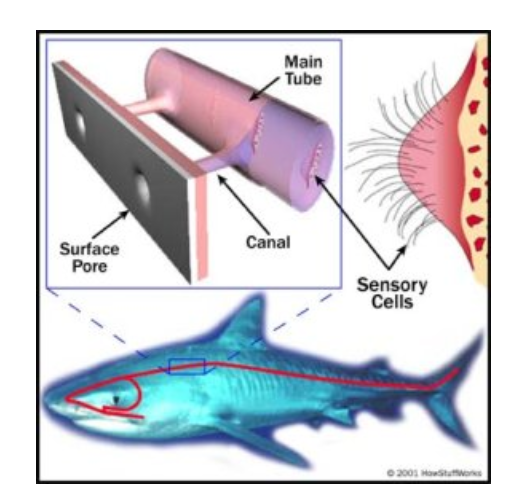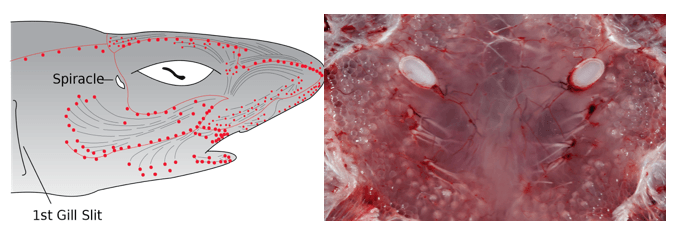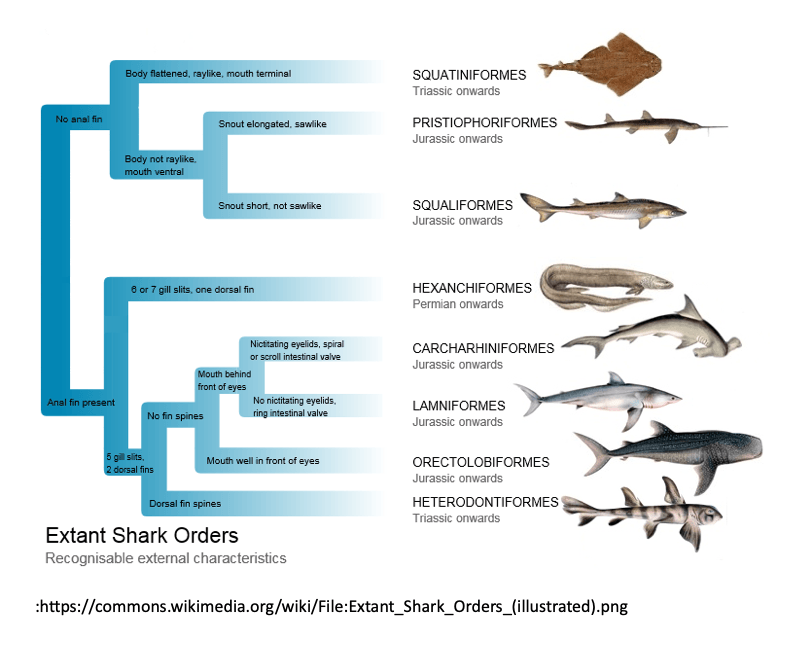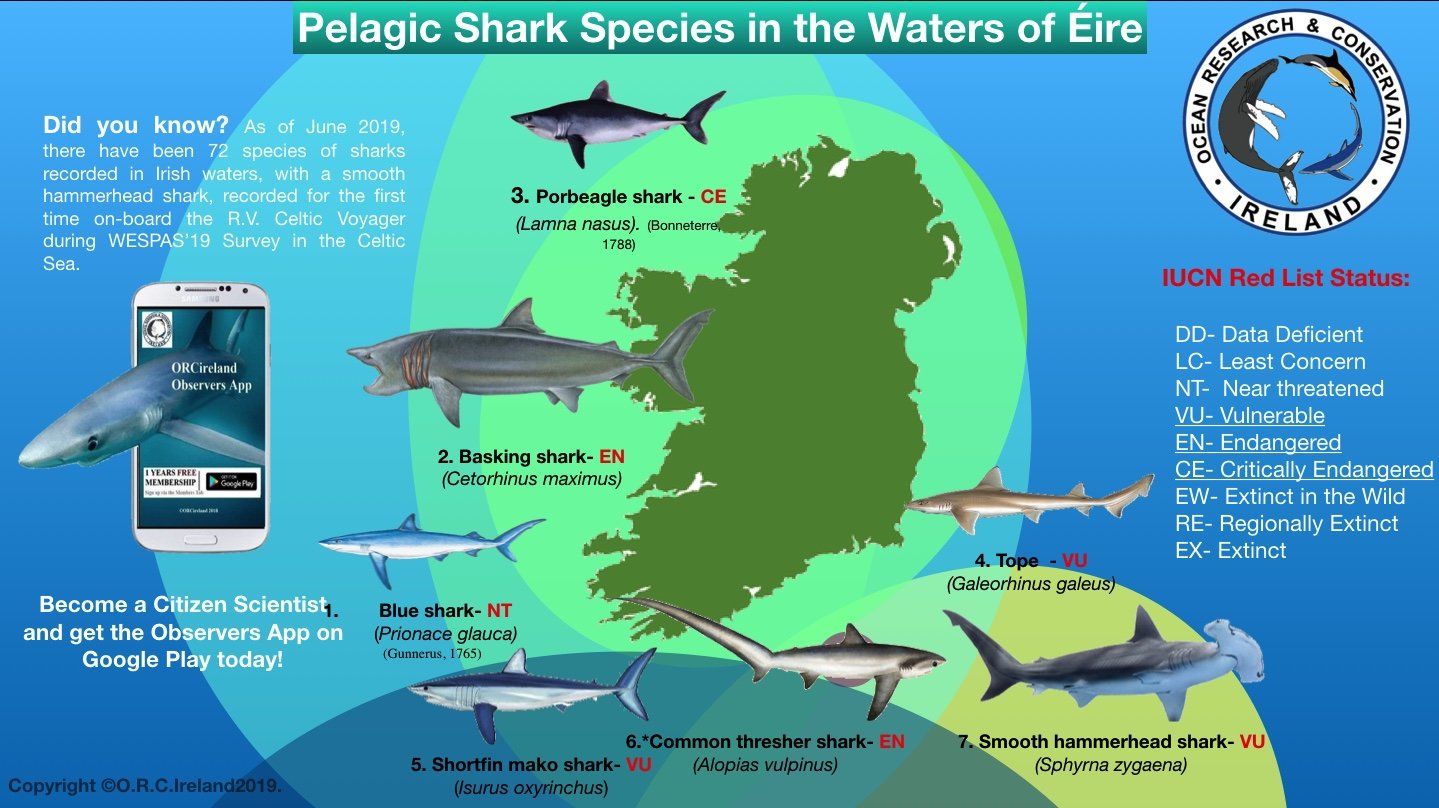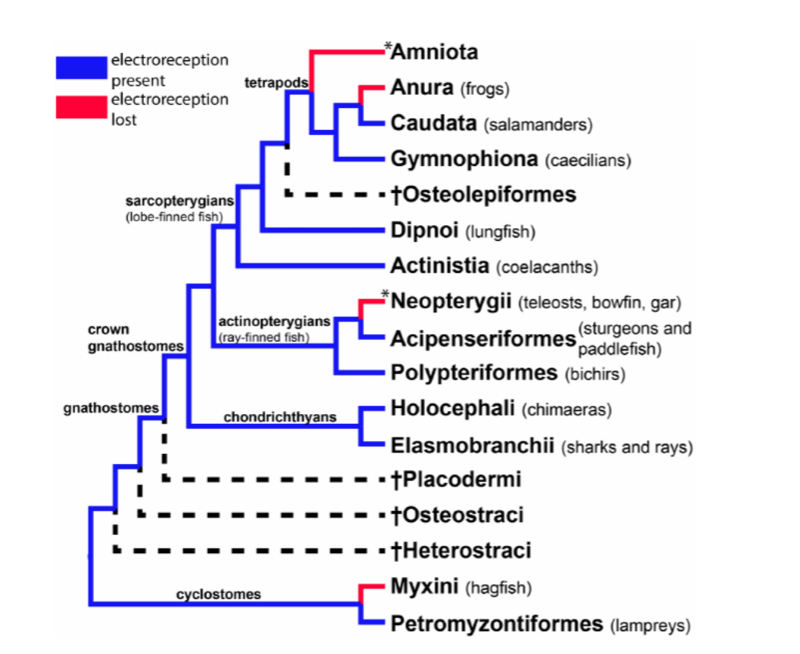A shark's 6th Sense: Ampullae of Lorenzini.
When most people see a shark, they see a perfect missile like object homing in on a target to catch their prey, this is true when you see them hunt. While using all their senses such as smell, hearing, vision, touch, taste but most importantly their electro-stimuli.
If you look more closely at a sharks snout, (particularly mackerel sharks belonging to the family Lamnidae e.g. Porbeagle ( Lamna nasus ), and the great white shark ( Carcharodon carcharias ) you can see the workings of the shark particularly on the nose and the line running down the middle of the shark which are the ampullary lateral-line organs.
The lateral line system, which all fish possess, allows them to detect waves of pressure or mechanical disturbances in the water. Unique to elasmobranchs species though are the modified parts of the lateral line organ and second formation of the Ampullae of Lorenzini
This is the formation in several groups of fish that have evolved ways to hunt prey using these very effective organs that are primarily sensitive to electrical fields (they can help a shark, ray and chimaeras to sense prey by detecting the weak electrical fields generated by activities of their food items).
In elasmobranchs species (e.g., sharks, rays and chimaeras), such organs are found on the head and snout and are called ampullae of Lorenzini. The number of these vary in each species depending on their hunting strategy. The more active sharks will have close to 1,500 or more, while the more sedentary ones may have a few hundred (Parker, 2002). These small black dots can be seen in pore like structures under the skin which are filled with a gel like substance (De luliis & puler, 2011).
The Ampullae of Lorenzini are used to seek out the electrical impulse given off by living creatures and these gel sacks make up a lot of area around the snout of the shark.
If you look at the lines running down the shark you can see that it is all interlaced. The water will run pass these organs causing the shark to relay messages from the water to its sensory organs. This includes the position of its prey and location, once the shark knows where it is it will launch an attack.
Sharks are highly sensitive to being touched in this area hence when you see videos of people touching a shark on the snout, they are over stimulated and become disorientated.
This method of hunting has been successful for more than 450 million years. They have lived through every major mass extinction event and have survived long past many of their competitors. With over 3,000 species spanning nearly half a billion years, sharks and rays are one of the most evolutionarily successful species to ever live (Living species of shark are spread across 512 described and 23 un-described species in eight orders and Elasmobranchii c.1,115 described species worldwide living currently today).
At present there are over 70 species in Irish waters contain cartilaginous fish, over half of the European list, and about 7% of the worldwide total, encompassing a broad range of sharks, rays, dogfishes and rabbitfishes (Clarke et al., 2016).
However, sharks aren't the only aquatic species that possess electro-recption as a 6th sense. Other species which have electroreceptors you may not know about which include lampreys (King et al ., 2018).
© Ocean Research & Conservation Ireland (O.R.C.Ireland) and www.orcireland.ie , est. 2017. If you like our blogs on the latest news in marine science and would like to support our work, visit www.orcireland.ie to become a member, to volunteer or to make a donation today. This article has been composed based on credible sources.
References
:
King, B., Hu, Y., Long, J. (2018) Electroreception in early vertebrates: survey, evidence and new information. Palaeontology, Vol. 61, Part 3, 2018, pp. 325–358.
Clarke, M., Farrell, E.D., Roche, W., Murray, T.E., Foster, S. and Marnell, F. (2016) Ireland Red List No. 11: Cartilaginous fish [sharks, skates, rays and chimaeras]. National Parks and Wildlife Service, Department of Arts, Heritage, Regional, Rural and Gaeltacht Affairs. Dublin, Ireland.
(The Animal Answer Guides_ Q&A for the Curious Naturalist) Burgess, George H._ Helfman, Gene S - Sharks_ The Animal Answer Guide-Johns Hopkins University Press (2014).
Gerardo De Iuliis and Dino Puler` (Auth.) - The Dissection of Vertebrates-Academic Press (2011).
Parker, Jane and Parker, Steve. "The Encyclopedia of Sharks." Firefly Books. 2002.
SHARE THIS ARTICLE







